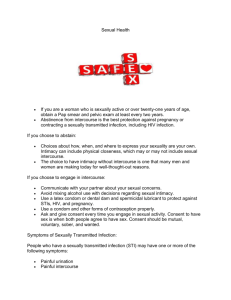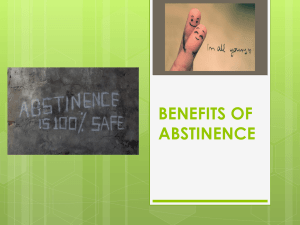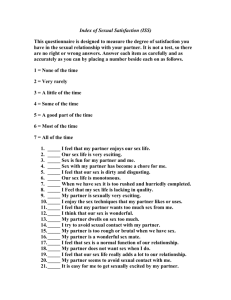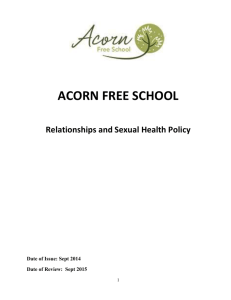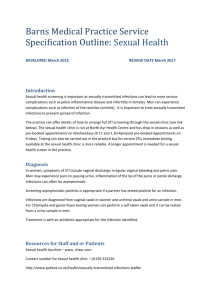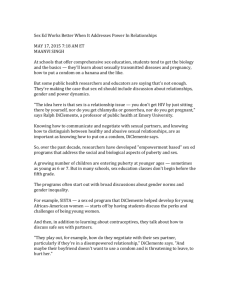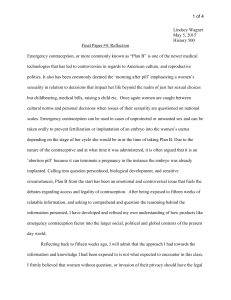GUM Learning Outcomes
advertisement
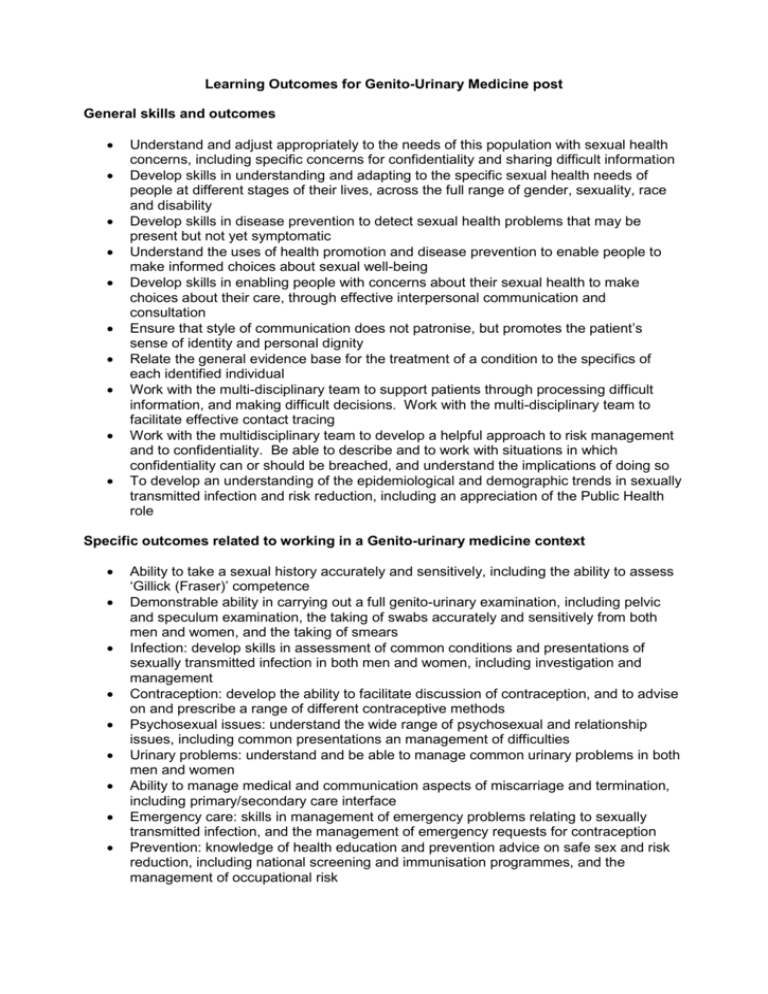
Learning Outcomes for Genito-Urinary Medicine post General skills and outcomes Understand and adjust appropriately to the needs of this population with sexual health concerns, including specific concerns for confidentiality and sharing difficult information Develop skills in understanding and adapting to the specific sexual health needs of people at different stages of their lives, across the full range of gender, sexuality, race and disability Develop skills in disease prevention to detect sexual health problems that may be present but not yet symptomatic Understand the uses of health promotion and disease prevention to enable people to make informed choices about sexual well-being Develop skills in enabling people with concerns about their sexual health to make choices about their care, through effective interpersonal communication and consultation Ensure that style of communication does not patronise, but promotes the patient’s sense of identity and personal dignity Relate the general evidence base for the treatment of a condition to the specifics of each identified individual Work with the multi-disciplinary team to support patients through processing difficult information, and making difficult decisions. Work with the multi-disciplinary team to facilitate effective contact tracing Work with the multidisciplinary team to develop a helpful approach to risk management and to confidentiality. Be able to describe and to work with situations in which confidentiality can or should be breached, and understand the implications of doing so To develop an understanding of the epidemiological and demographic trends in sexually transmitted infection and risk reduction, including an appreciation of the Public Health role Specific outcomes related to working in a Genito-urinary medicine context Ability to take a sexual history accurately and sensitively, including the ability to assess ‘Gillick (Fraser)’ competence Demonstrable ability in carrying out a full genito-urinary examination, including pelvic and speculum examination, the taking of swabs accurately and sensitively from both men and women, and the taking of smears Infection: develop skills in assessment of common conditions and presentations of sexually transmitted infection in both men and women, including investigation and management Contraception: develop the ability to facilitate discussion of contraception, and to advise on and prescribe a range of different contraceptive methods Psychosexual issues: understand the wide range of psychosexual and relationship issues, including common presentations an management of difficulties Urinary problems: understand and be able to manage common urinary problems in both men and women Ability to manage medical and communication aspects of miscarriage and termination, including primary/secondary care interface Emergency care: skills in management of emergency problems relating to sexually transmitted infection, and the management of emergency requests for contraception Prevention: knowledge of health education and prevention advice on safe sex and risk reduction, including national screening and immunisation programmes, and the management of occupational risk

